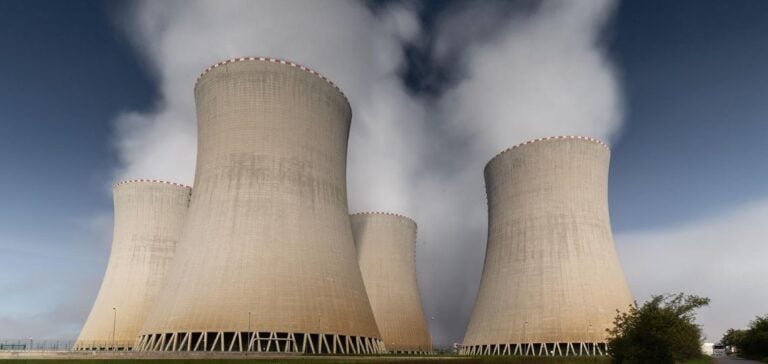Czech state-owned CEZ plans to announce its choice of supplier for Small Modular Reactors (SMRs) by the end of 2024.
Candidates include Westinghouse (USA), GE Hitachi (US-Japan) and Rolls-Royce (UK).
CEZ thus ruled out EDF, which withdrew from the competition in January, preferring to concentrate on other technologies.
The SMR project is part of a wider strategy to diversify energy sources in the Czech Republic, as the country gradually reduces its dependence on coal.
Evolution of CEZ’s Energy Strategy
CEZ plans to install its first SMR in Temelin by 2032, with a target of ten units by 2050.
Considered easier to build and secure, SMRs offer an alternative to conventional nuclear reactors.
Factory-built and assembled on site, these reactors offer advantages in terms of cost and risk.
This strategy echoes Prague’s desire to increase the share of nuclear power in its energy mix to 50%, from the current 30%, as part of a plan to gradually replace coal-fired power plants.
At the same time, CEZ is also opting to build two new conventional nuclear units at Dukovany.
The contract, worth almost nine billion dollars, was awarded to Korea Hydro & Nuclear Power (KHNP) after a competitive bidding process in which EDF and Westinghouse were eliminated.
The latter appealed this decision to the Czech Competition Office, illustrating the fierce competition at play in the European nuclear sector.
Challenges and opportunities of SMR choice
For CEZ, the choice of SMR represents a response to the growing need for energy stability and independence, without neglecting economic and technological constraints.
SMR projects in Europe are still rare, and their integration in the Czech Republic could serve as a model for other countries seeking to balance energy security and supply flexibility.
Smaller reactors, which are less expensive to build than their traditional counterparts, could also reduce commissioning times, a key consideration for investors and political decision-makers.
The CEZ initiative is part of a series of measures to modernize and secure the Czech Republic’s energy supply.
The Dukovany project, entrusted to KHNP, is scheduled to begin with testing of the first unit in 2036.
The Czech Republic is thus seeking to position itself as a key player in the European nuclear sector, while ensuring an energy transition aligned with its national interests.
Perspective on the Energy Future of the Czech Republic
CEZ’s decision to invest in SMRs and conventional reactors reflects a strategy geared towards diversification and security of supply.
By increasing their share of the national energy mix, nuclear reactors could enable the Czech Republic to reduce its reliance on fossil fuels while ensuring stable electricity production.
Ongoing negotiations and appeals by EDF and Westinghouse also underline the geopolitical importance of energy contracts in the region.
CEZ’s final choice for its future SMRs, expected by the end of the year, will determine not only the country’s energy future, but also relations with its international industrial partners, against a backdrop of global energy transition and trade tensions.






















